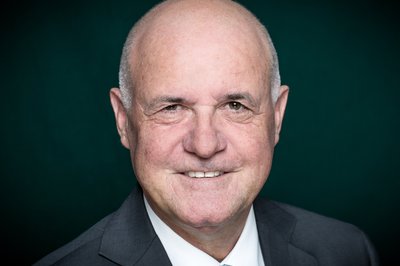Potential AIFMD Passporting to Switzerland and FINMA's Guidance on EU Regulations
1. Background
This regulatory update provides an overview on the recent developments in the EU concerning the (potential) extension of the EU passport to Switzerland and some practical implications of the Swiss regulator's assessment to treat EU regulation as an equivalent under the new Swiss regulatory regime.
To facilitate cross-jurisdictional financial investments, the application of the EU passport to twelve non-EU countries, including Switzerland, becomes an important topic. The European Securities and Markets Authority ("ESMA") has set out rules on – eventually – extending the EU passport to non-EU AIFMs (alternative investment fund managers) and AIFs (alternative investment funds). This extension is based on the Directive 2011/61/EU on Alternative Investment Fund Managers ("AIFMD"). The AIFMD leaves room for the EU passport (currently reserved to EU AIFMs and AIFs) to be potentially extended to non-EU countries (including Switzerland) in the future. Such a move will bring significant benefits from a market access perspective.
Within three months after receiving ESMA’s advice, the EU Commission is expected to adopt an act specifying the date when the specific rules set out in the AIFMD apply to all EU Member States, thus extending the EU passport to non-EU AIFs and non-EU AIFMs jurisdictions where the Commission received positive advice.
Along with the development with respect to potential application of AIFMD passporting to Swiss AIFMs, the Swiss Federal Council not only amended the Financial Market Infrastructure Ordinance ("FinfraV") on 29 June 2016 but also extended the transitional periods for financial market infrastructures by one year - in line with the EU progress. This extension enables the Swiss Financial Market Supervisory Authority (FINMA) to take appropriate account of any further EU specifications related to the relevant market regulations.
Furthermore, on 6 July 2016, FINMA issued the “Financial Market Infrastructure Act: FINMA’s next steps” ("FINMA Guidance") to inform the financial market participants about the current status of FINMA's follow-up activities as well as the next steps to be taken by the Swiss regulator. FINMA will undertake a regular equivalence assessment process concerning the relevant EU regulations, such as EMIR, MIFIR and MIFID II; it will also inform the financial market participants in due course on its decision.
2. ESMA's Advice and Opinion on the Swiss Regulation and FINMA
According to ESMA, granting passports to non-EU (including Swiss) AIFMs might result in more AIFs on the EU market, which may have, in the long term, an impact on investor choice in the EU market. Nevertheless, ESMA sees no evidence of any significant obstacles regarding either market disruption or competition that would stand in the way to applying the AIFMD passport to Switzerland.
Only with respect to different treatments of EU funds and managers – depending on the existence of bilateral agreements between FINMA and the regulatory authority of some EU Member States – did ESMA note that this could be relevant to the assessment of whether there are obstacles to competition. Again, ESMA sees no evidence that the Swiss regulatory regime has major issues regarding monitoring systemic risk. Based upon the IMF’s 2014 assessment of the implementation of IOSCO Principle 6, ESMA considers that no significant obstacles regarding the monitoring of systemic risk block the application of the AIFMD passport to Switzerland. After assessing the possible obstacles regarding investor protection, competition, market disruption, and the monitoring of systemic risk that may impede the application of the AIFMD passport to Switzerland, ESMA concluded that no significant obstacles exist that would stand in the way of applying the AIFMD passport to Switzerland. Therefore, ESMA generally recommends the potential extension of the passport to Switzerland.
3. FINMA Guidance on EU Regulation (Guidance 01/2016)
FINMA recognized the EU regulations, including EMIR, as provisionally equivalent (and extended the Swiss phase-in periods in its Guidance 01/2016.). In practice, the principle of equivalence emerges as a game changer when it comes to using existing infrastructures and operational set ups when applying Swiss regulatory rules. For instance, the purpose of Art. 95 of the Financial Market Infrastructure Act ("FinfraG") is to avoid situations where a transaction with a counterparty in a third state – recognized by FINMA and subject to regulations equivalent to FinfraG – would be subject to both the Swiss and the third states' regulation. Having said that, the aforementioned does not include the possibility for a counterparty to choose and to apply a regulation from any state to which the transactions in question have no connection. With regard to transactions between Swiss counterparties, Art. 81 para. 3 of the Financial Market Infrastructure Ordinance ("FinfraV") does, in fact, explicitly allow applying a foreign regulation – recognized by FINMA – as being equivalent to the Swiss regulation only if these transactions have a factual relation with the foreign state in question. A choice of law is explicitly mentioned as being insufficient to establish such a factual relation. A similar interpretation would apply to transactions between a Swiss and a foreign counterparty, therefore excluding the possibility to apply the regulation of a third state not connected to the transactions.


